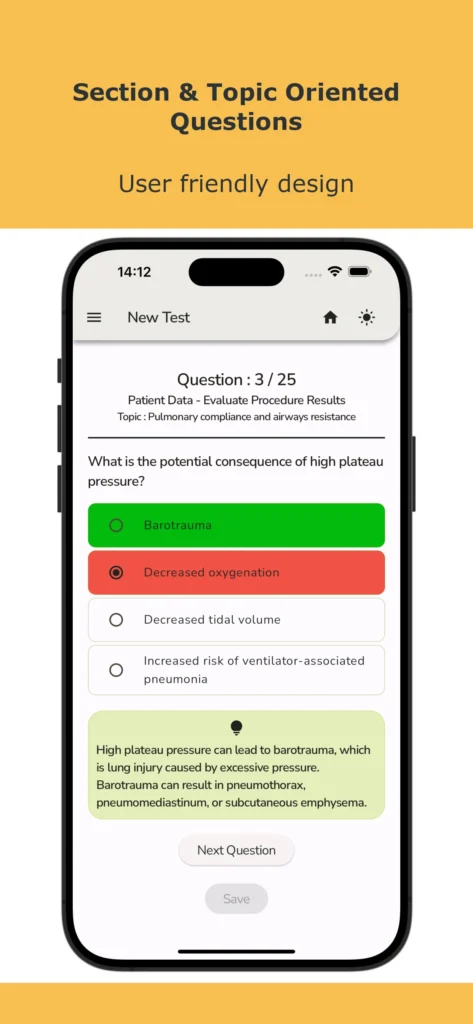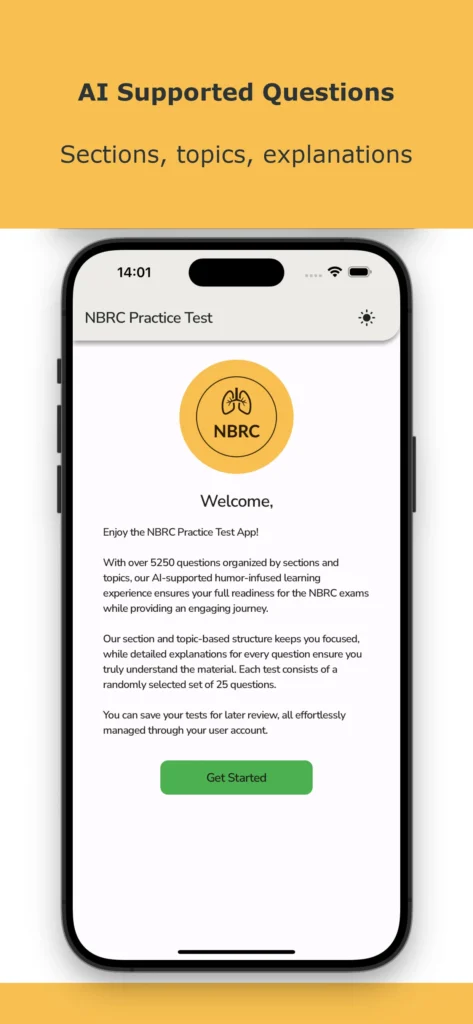Introduction to NBRC Asthma Educator Certification
What is NBRC Asthma Educator Certification?
The NBRC Asthma Educator Certification is a professional certification program offered by the National Board for Respiratory Care (NBRC). It is designed for healthcare professionals who specialize in asthma education and want to demonstrate their expertise in this field.
The certification is recognized nationwide and signifies that the individual has met the rigorous standards set by the NBRC. It is a mark of distinction that demonstrates the individual’s commitment to providing high-quality asthma education and improving patient outcomes.
Why is NBRC Asthma Educator Certification important?
Obtaining NBRC Asthma Educator Certification is important for several reasons:
- Recognition: The certification is widely recognized and respected in the healthcare industry, providing credibility and validation to the certified individual.
- Competency: The certification ensures that the individual has the necessary knowledge and skills to effectively educate patients about asthma management.
- Improved Patient Care: Certified asthma educators are equipped with the latest evidence-based practices and can provide comprehensive education to patients, leading to improved asthma management and better patient outcomes.
Who can benefit from NBRC Asthma Educator Certification?
Several healthcare professionals can benefit from obtaining NBRC Asthma Educator Certification, including:
- Respiratory Therapists: Respiratory therapists play a crucial role in asthma management and can enhance their skills and knowledge through certification.
- Nurses: Nurses who work with asthma patients can benefit from certification to provide more effective education and support.
- Physicians: Physicians who specialize in asthma care can enhance their expertise and credibility through certification.
- Pharmacists: Pharmacists who work with asthma patients can expand their knowledge and skills through certification.
How to become a Certified NBRC Asthma Educator?
To become a Certified NBRC Asthma Educator, individuals must meet certain eligibility requirements and pass the certification examination. The eligibility requirements include:
- Hold a valid healthcare professional license or certification
- Have a minimum of two years of experience in asthma education or related field
- Complete a minimum of 10 hours of continuing education in asthma management
Once the eligibility requirements are met, individuals can apply for the certification examination. The examination consists of multiple-choice questions that assess the individual’s knowledge and skills in asthma education. Upon successful completion of the examination, individuals will be awarded the NBRC Asthma Educator Certification.
Conclusion
The NBRC Asthma Educator Certification is a valuable credential for healthcare professionals involved in asthma education. It demonstrates their expertise and commitment to providing high-quality care to asthma patients. By obtaining this certification, healthcare professionals can enhance their knowledge, skills, and credibility in the field of asthma education.
Benefits of Becoming a Certified NBRC Asthma Educator
1. Career Advancement Opportunities
Becoming a certified NBRC Asthma Educator opens up a world of career advancement opportunities. As an asthma educator, you will have the knowledge and skills to provide specialized care and education to patients with asthma. This expertise will make you a valuable asset to healthcare organizations, clinics, and hospitals.
With your certification, you may be eligible for promotions, higher salaries, and increased job responsibilities. You may also have the opportunity to take on leadership roles, such as managing an asthma education program or training other healthcare professionals.
2. Increased Job Satisfaction
As a certified NBRC Asthma Educator, you will have the satisfaction of knowing that you are making a difference in the lives of patients with asthma. By providing education and support, you can help patients better manage their condition, reduce symptoms, and improve their overall quality of life.
Seeing the positive impact of your work on patients and their families can be incredibly rewarding. It can give you a sense of purpose and fulfillment in your career.
3. Enhanced Knowledge and Skills
Obtaining certification as an NBRC Asthma Educator requires a comprehensive understanding of asthma and its management. Through the certification process, you will gain in-depth knowledge about asthma triggers, medications, inhaler techniques, and self-management strategies.
This knowledge will not only benefit your patients but also enhance your own professional development. You will become a subject matter expert in asthma education, staying up-to-date with the latest research and best practices in the field.
4. Credibility and Recognition
Being a certified NBRC Asthma Educator gives you credibility and recognition within the healthcare community. It demonstrates your commitment to excellence and your dedication to providing high-quality care to patients with asthma.
Healthcare professionals, employers, and patients will recognize your certification as a mark of expertise and trustworthiness. This can open doors to new opportunities, collaborations, and professional networks.
5. Continuing Education and Professional Growth
As a certified NBRC Asthma Educator, you will be required to participate in continuing education activities to maintain your certification. This ensures that you stay current with the latest advancements in asthma management and education.
Continuing education not only keeps your knowledge and skills sharp but also demonstrates your commitment to ongoing professional growth. It shows that you are dedicated to providing the best possible care to your patients.
By staying up-to-date with the latest research and best practices, you can continuously improve your practice and deliver the most effective asthma education to your patients.
Preparing for the NBRC AE-C Examination
What is the NBRC AE-C Examination?
The NBRC AE-C Examination is a certification exam conducted by the National Board for Respiratory Care (NBRC) to assess the knowledge and skills of individuals who wish to become Certified Asthma Educators. This examination is designed to evaluate the competency of healthcare professionals in providing education and support to patients with asthma.
By passing the NBRC AE-C Examination, you can demonstrate your expertise in asthma management and education, enhancing your professional credibility and opening up new career opportunities in the field.
How to Prepare for the NBRC AE-C Examination
Preparing for the NBRC AE-C Examination requires a comprehensive study plan and a solid understanding of the exam content. Here are some steps you can take to ensure you are well-prepared:
- Review the Exam Content: Familiarize yourself with the exam content outline provided by the NBRC. This will give you an overview of the topics that will be covered in the examination.
- Study Resources: Utilize study resources such as textbooks, online courses, and practice exams specifically designed for the NBRC AE-C Examination. These resources will help you gain a deeper understanding of the subject matter and practice answering exam-style questions.
- Create a Study Schedule: Develop a study schedule that allows you to allocate dedicated time for each topic. This will help you stay organized and ensure you cover all the necessary material.
- Practice Time Management: The NBRC AE-C Examination is a timed exam, so it is crucial to practice time management during your study sessions. This will help you get accustomed to answering questions within the allocated time.
- Join Study Groups: Consider joining study groups or online forums where you can interact with other individuals preparing for the NBRC AE-C Examination. This will provide you with an opportunity to discuss challenging topics, share study materials, and gain insights from others.
Additional Tips for Success
Here are some additional tips to help you succeed in the NBRC AE-C Examination:
- Take Practice Exams: Take advantage of practice exams to familiarize yourself with the format and types of questions you may encounter in the actual examination. This will help you identify areas where you need further improvement.
- Review Your Weak Areas: After taking practice exams, review your incorrect answers and focus on understanding the concepts you struggled with. This will help you strengthen your knowledge in those areas.
- Stay Updated: Stay updated with the latest guidelines and research in asthma management. The NBRC AE-C Examination may include questions related to current practices and advancements in the field.
- Manage Test Anxiety: Develop strategies to manage test anxiety, such as deep breathing exercises and positive self-talk. Remember to stay calm and confident during the examination.
- Seek Guidance: If you have any questions or need clarification on certain topics, don’t hesitate to seek guidance from experienced asthma educators or respiratory therapists.
By following these tips and dedicating sufficient time and effort to your preparation, you can increase your chances of success in the NBRC AE-C Examination and become a certified NBRC Asthma Educator.
The Role of a Certified NBRC Asthma Educator
What is a Certified NBRC Asthma Educator?
A Certified NBRC Asthma Educator is a healthcare professional who specializes in providing education and support to individuals with asthma. They are trained to help patients understand their condition, manage their symptoms, and make informed decisions about their treatment options.
As a Certified NBRC Asthma Educator, you play a crucial role in improving the quality of life for individuals with asthma. Your expertise and guidance can make a significant difference in helping patients achieve better control over their condition and reduce the frequency and severity of asthma attacks.
Responsibilities of a Certified NBRC Asthma Educator
As a Certified NBRC Asthma Educator, your responsibilities may include:
- Educating patients about asthma, its causes, symptoms, and triggers
- Teaching patients how to properly use inhalers and other asthma medications
- Developing personalized asthma action plans for patients
- Assessing patients’ asthma control and adjusting treatment plans as needed
- Providing guidance on environmental modifications to reduce asthma triggers
- Collaborating with other healthcare professionals to ensure comprehensive care for patients
Importance of a Certified NBRC Asthma Educator
Asthma is a chronic condition that requires ongoing management and education. A Certified NBRC Asthma Educator plays a vital role in empowering patients to take control of their asthma and improve their overall well-being. By providing education, support, and personalized care, you can help patients:
- Understand their asthma triggers and learn how to avoid them
- Recognize early warning signs of an asthma attack
- Effectively use their medications to manage symptoms
- Develop self-management skills to reduce the impact of asthma on their daily lives
Becoming a Certified NBRC Asthma Educator
To become a Certified NBRC Asthma Educator, you must meet certain requirements:
- Hold a valid healthcare professional license (such as a registered nurse, respiratory therapist, or physician)
- Complete the required education and training in asthma education
- Pass the Certified Asthma Educator (AE-C) examination administered by the National Board for Respiratory Care (NBRC)
By obtaining certification as an NBRC Asthma Educator, you demonstrate your commitment to excellence in asthma education and patient care. It also enhances your professional credibility and opens up opportunities for career advancement.
Conclusion
As a Certified NBRC Asthma Educator, you have the knowledge and skills to make a positive impact on the lives of individuals with asthma. Your role in educating and supporting patients is crucial in helping them achieve better control over their condition and improve their overall quality of life.
Key Takeaways for Aspiring NBRC Asthma Educators
What is an NBRC Asthma Educator?
An NBRC Asthma Educator is a healthcare professional who specializes in educating patients and their families about asthma management. They play a crucial role in helping individuals understand their condition, develop effective self-management strategies, and improve their overall quality of life.
Why Become an NBRC Asthma Educator?
Becoming an NBRC Asthma Educator offers numerous benefits:
- Opportunity to make a positive impact on the lives of asthma patients
- Job stability and growth in the healthcare industry
- Enhanced professional development and career advancement
- Increased earning potential
Steps to Become an NBRC Asthma Educator
If you’re interested in becoming an NBRC Asthma Educator, here are the key steps you need to follow:
- Earn a high school diploma or equivalent
- Complete a respiratory therapy program accredited by the Commission on Accreditation for Respiratory Care (CoARC)
- Pass the National Board for Respiratory Care (NBRC) Certified Respiratory Therapist (CRT) exam
- Gain clinical experience as a respiratory therapist
- Complete an NBRC-approved Asthma Educator course
- Pass the NBRC Asthma Educator exam
Skills and Qualities of an NBRC Asthma Educator
To excel as an NBRC Asthma Educator, you should possess the following skills and qualities:
- Strong communication and interpersonal skills
- Empathy and compassion for patients
- Excellent teaching and presentation abilities
- Knowledge of asthma management guidelines and protocols
- Ability to assess patient needs and develop personalized education plans
Continuing Education and Recertification
As an NBRC Asthma Educator, it’s important to stay updated with the latest advancements in asthma management. Continuing education opportunities and recertification are essential to maintain your knowledge and skills. The NBRC offers various resources and programs to support ongoing professional development.
Conclusion
Becoming an NBRC Asthma Educator is a rewarding career path for healthcare professionals passionate about helping asthma patients. By following the necessary steps and continuously expanding your knowledge, you can make a significant difference in the lives of individuals living with asthma.
Conclusion
In conclusion, becoming a certified NBRC Asthma Educator is a valuable step for healthcare professionals who want to specialize in asthma education and provide the best care for their patients. The certification process involves meeting the eligibility requirements, studying the recommended resources, and passing the NBRC Asthma Educator Exam. By becoming certified, educators gain a deeper understanding of asthma management, treatment options, and patient education techniques.
By obtaining the NBRC Asthma Educator certification, healthcare professionals demonstrate their commitment to excellence in asthma education and their dedication to improving the lives of patients with asthma. This certification not only enhances their knowledge and skills but also increases their professional credibility and opens up new career opportunities.
Furthermore, for those interested in expanding their expertise beyond asthma, the NBRC also offers a certification for COPD educators. The NBRC COPD Educator certification follows a similar process and provides educators with the knowledge and skills necessary to educate patients with chronic obstructive pulmonary disease.
In summary, the NBRC Asthma Educator certification is a valuable credential for healthcare professionals who want to specialize in asthma education. It signifies their commitment to providing the best care for patients with asthma and opens up new career opportunities. Additionally, the NBRC also offers a certification for COPD educators, allowing professionals to expand their expertise in chronic obstructive pulmonary disease. Whether you choose to become a certified NBRC Asthma Educator or a certified NBRC COPD Educator, both certifications will enhance your knowledge, skills, and professional credibility in the field of respiratory care.








